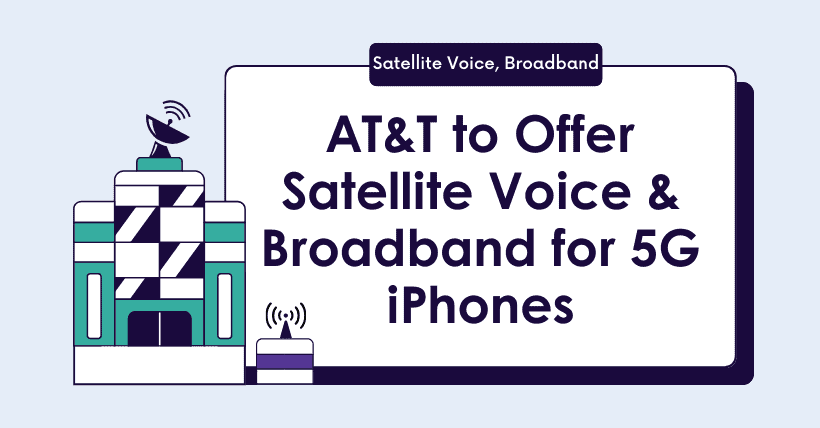In the past two years, an increasing number of domestic smartphone manufacturers have begun incorporating satellite communication functionality into their flagship devices. Across the ocean in the United States, the situation seems even more aggressive, as reports are indicating that some carriers are planning to offer satellite calling and broadband services for the 5G version of the iPhone.
For six years, AT&T has been committed to introducing satellite broadband, especially voice calling, to smartphones. During this time, Apple became the first smartphone manufacturer to launch emergency SOS services via satellite. However, Apple’s service is limited to text messages, although AT&T claims to be able to provide full 5G broadband service through its system. Both companies state that they have achieved voice calling in testing but have not provided details on performance.
When Apple announced the provision of emergency SOS services via satellite, Musk and T-Mobile claimed to be researching it as well. While Musk’s Starlink already provides internet service via satellite, the collaboration with T-Mobile is limited to text messaging.
Therefore, AT&T claims that bringing satellite broadband networks directly to everyday smartphones is significant. This is not entirely new, but what is different now is that AT&T has reached a final commercial agreement with the satellite company AST SpaceMobile.
Since 2018, the two companies have been operating under a memorandum of understanding. They jointly claim that this new contract is a significant step towards their goals. AT&T’s Chief Operating Officer, Jeff McElfresh, stated in a release: “Space-based direct mobile technology is designed to provide connectivity to customers by complementing and integrating with our existing mobile networks.” The technology is also expected to benefit our industry-leading position.
It is currently unclear how 5G networks will overcome issues such as latency involved in calling via space relays. The latency for satellite calling and internet use may be an order of magnitude higher than transmission times between ground stations. Nevertheless, if AT&T and AST SpaceMobile can truly achieve this, then theoretically, every iPhone since the first iPhone 12, which first supported 5G, could make voice calls via satellite, potentially reducing the need for emergency SOS functions via satellite and allowing broader access to complete data.
Related:

Disclaimer: This article is created by the original author. The content of the article represents their personal opinions. Our reposting is for sharing and discussion purposes only and does not imply our endorsement or agreement. If you have any objections, please contact us through the provided channels.



